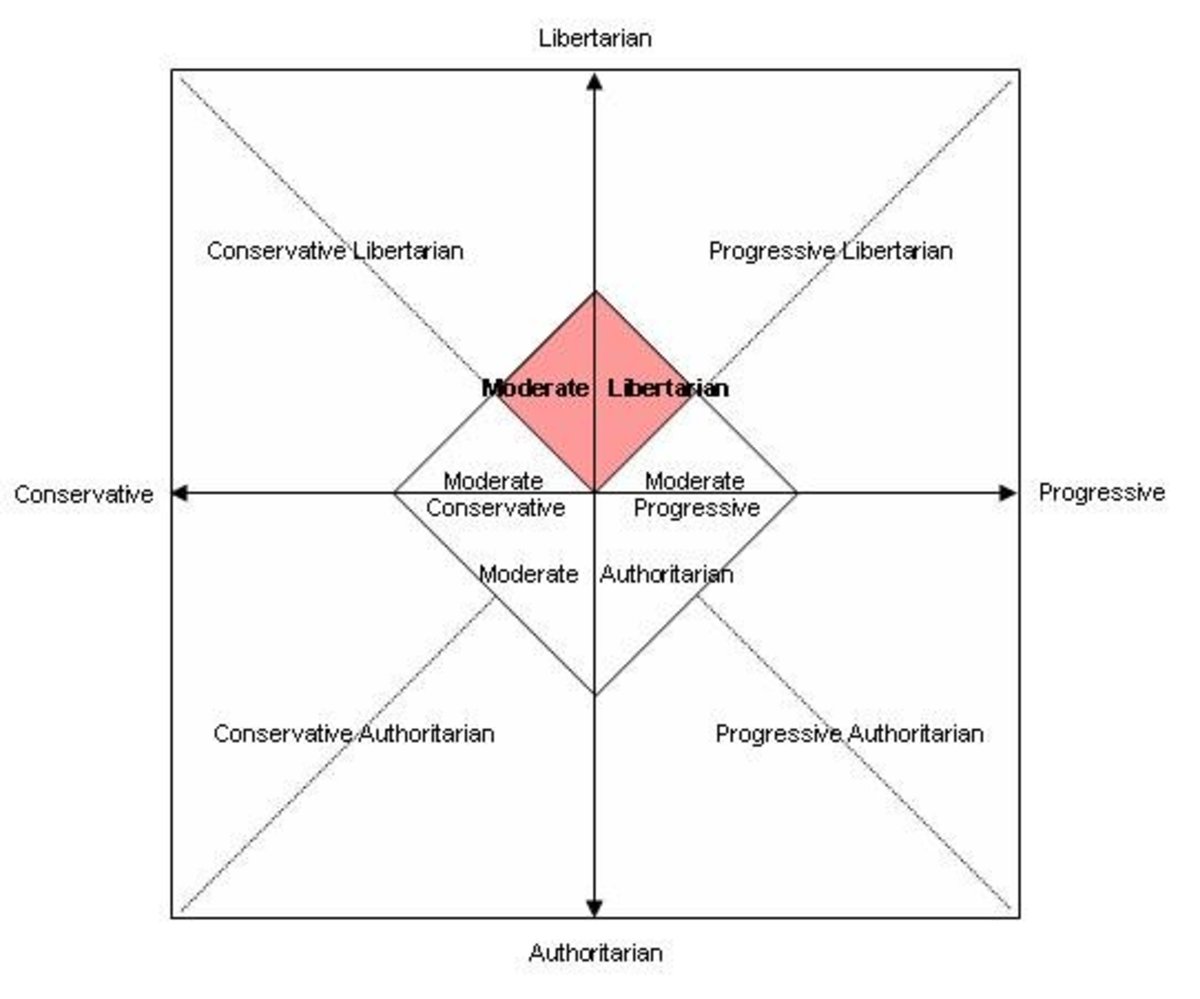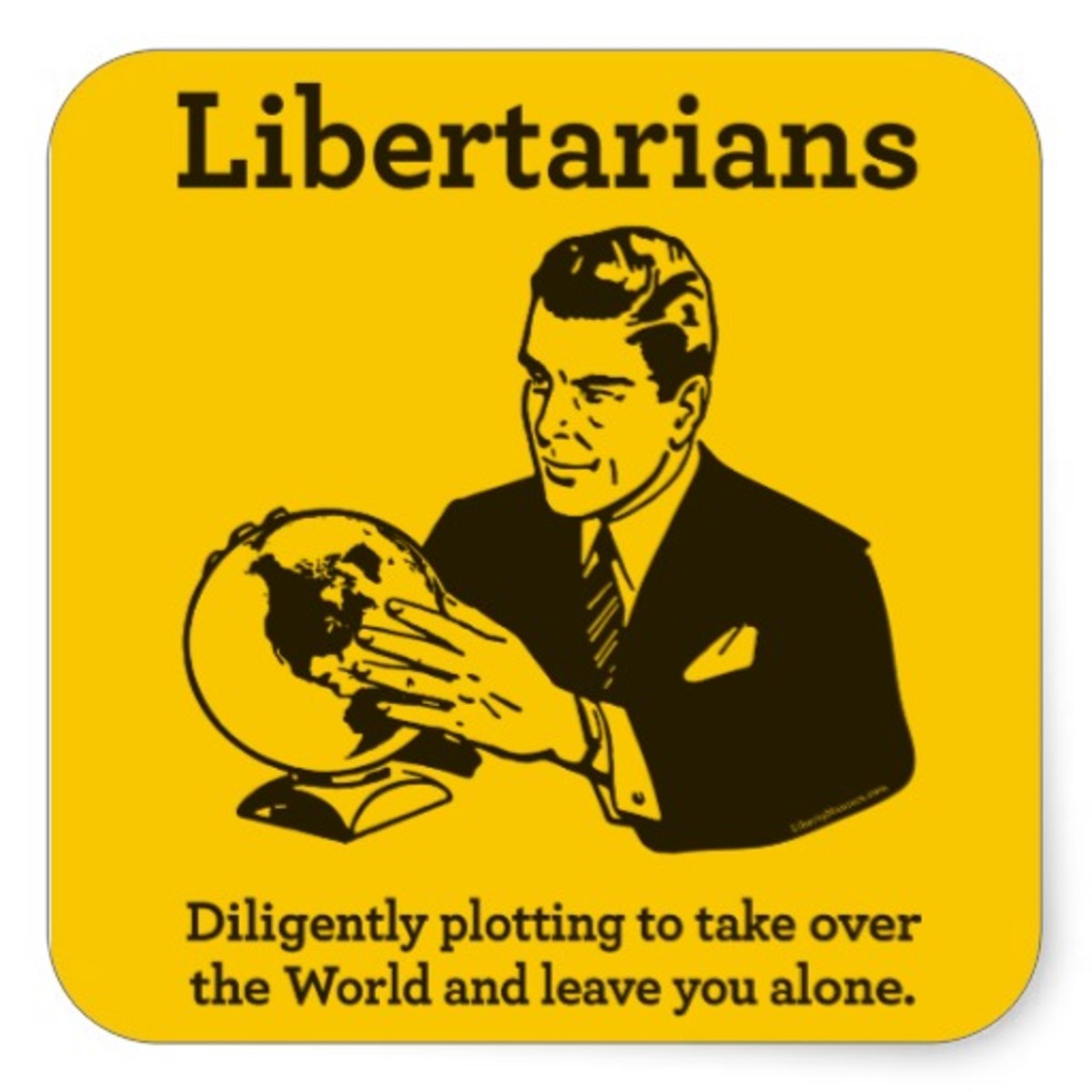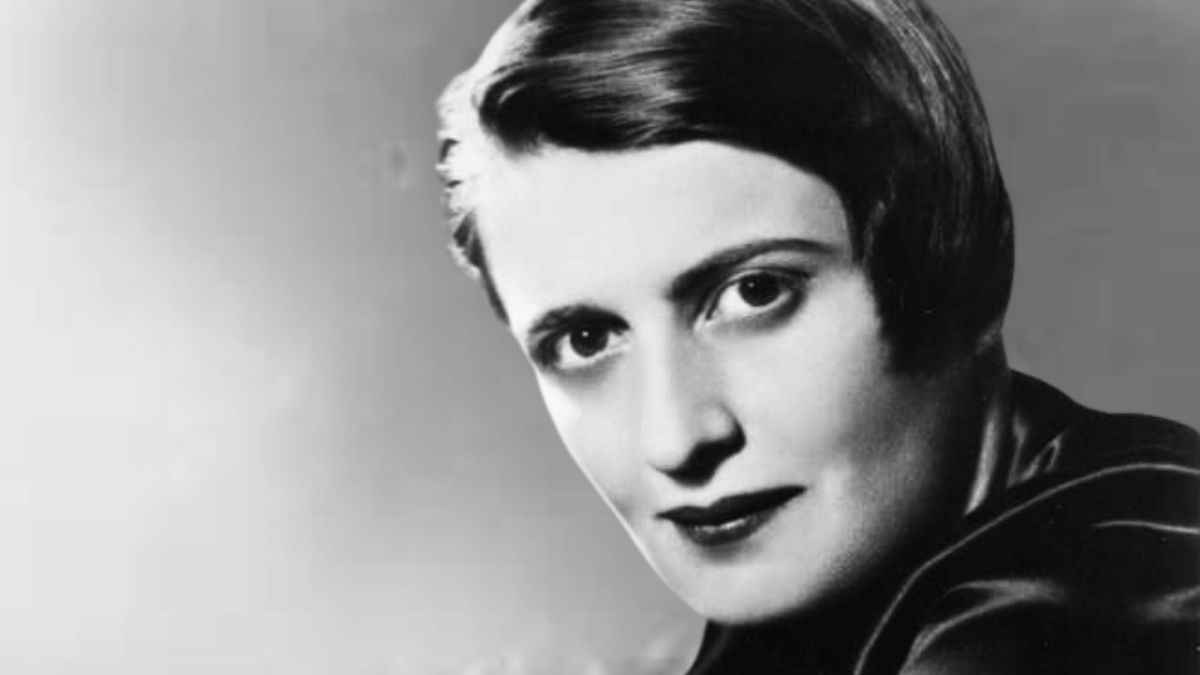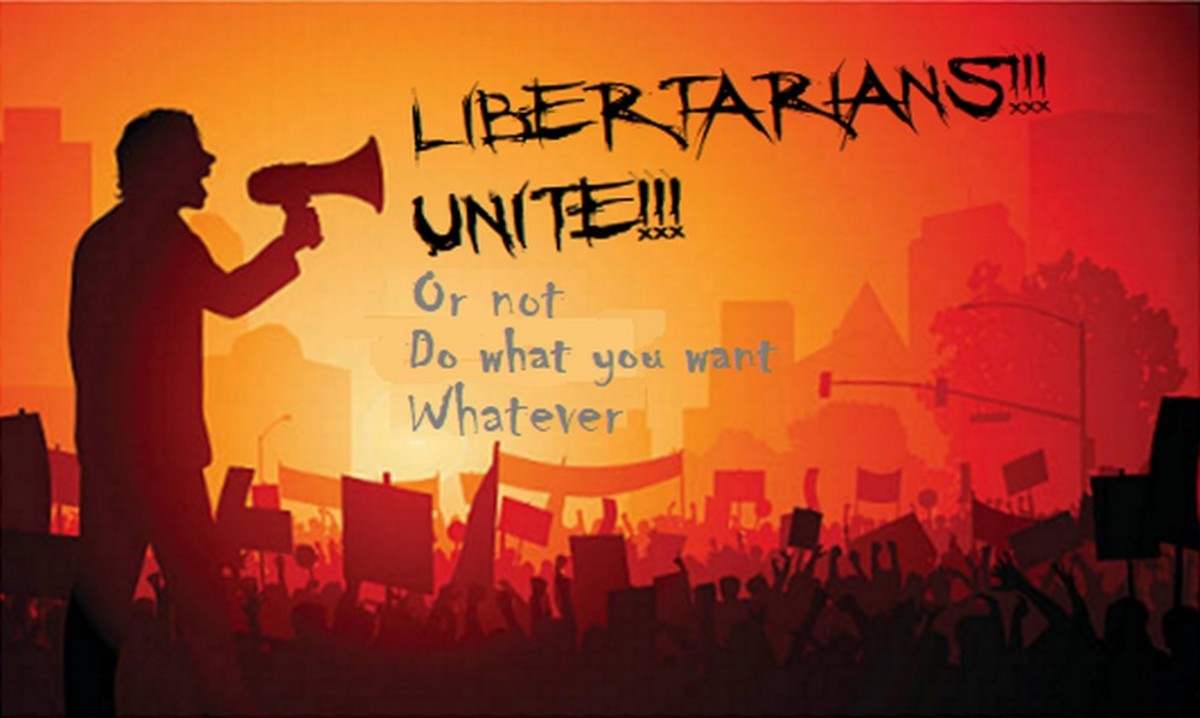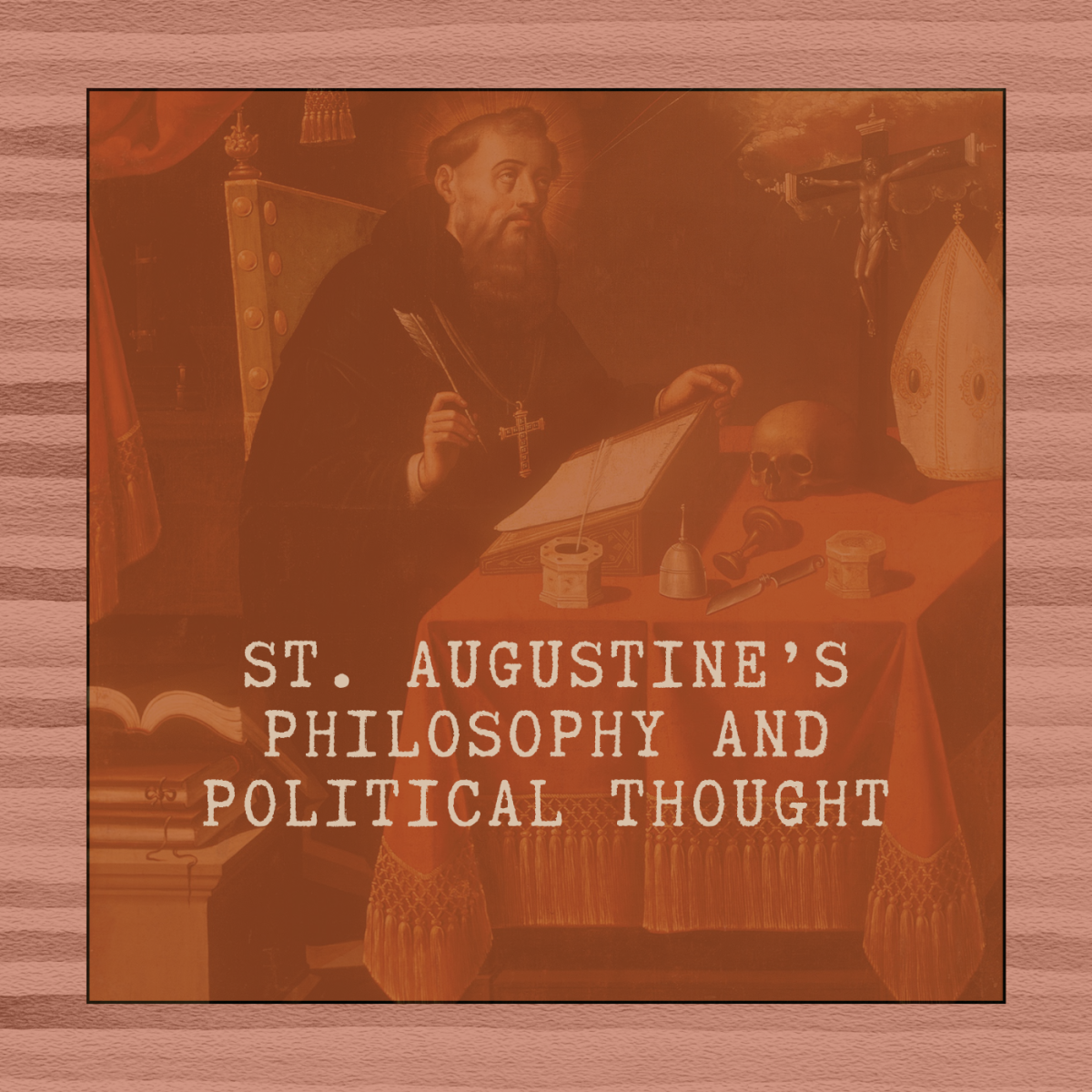How Did You Finally Become a Libertarian?
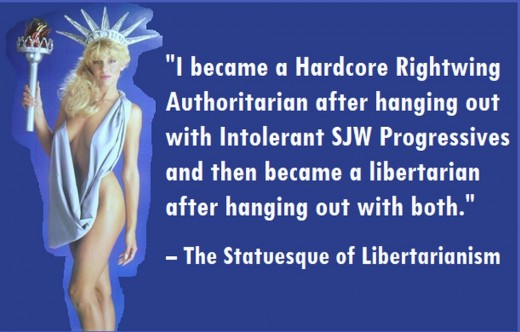
Commentary From Your Libertarian Opinionizer
All libertarians have their “Becoming” story. Most were former Republicans or Democrats, coming from the political left or the right, from their study of the Constitution, from Ayn Rand’s Objectivism, from Austrian or Chicago or other various free market schools of economics, from discovering the Libertarian Party, from Ron Paul’s presidential runs, from apolitical and non-philosophical beginnings and from other et cetera origins.
Some, even more rarely, made a much longer trek from a belief in hardcore collectivist positions such as socialism, communism, fascism and other forms of Marxist thought or from various coercive hierarchically invasive political systems.
For example, do you know that Walter Block came to libertarianism from socialism? First, perhaps, do you know Walter Block?
Book Break: Your Libertarian Opinionizer’s Pick

Libertarians are More Becoming
Economist Walter Block is best known to earlier generations of libertarians as the author of the book Defending the Undefendable, highly controversial when it appeared in 1976 for rejecting the idea of victimless crimes by defending, as the book’s subtitle said, “The Pimp, Prostitute, Scab, Slumlord, Libeler, Moneylender, and Other Scapegoats in the Rogue's Gallery of American Society.”
In a 2011 Psychology Today article, “How I Became a Libertarian,” Block lamented that so few libertarians ever wrote their own biographies and then offered his own.
That autobiography became the inspiration for the I Chose Liberty book of “Autobiographies of Contemporary Libertarians.” Invitations went out to the libertarian community and the book was compiled and published by the Ludwig von Mises Institute in 2012.
In his own witty and thorough way Block begins his own bio from his earliest beginnings:
“Born in 1941 in Brooklyn, I was brought up amongst Jewish liberals (almost a redundancy) and naturally fell into this mode of thinking.”
As a student he then hobnobbed his way through some of the highest nobs of his day, personally interacting with the likes of Objectivists Ayn Rand, Nathaniel and Barbara Branden, Leonard Peikoff and Alan Greenspan, and then moved on to Murray Rothbard and “others who counseled me through the thickets of laissez faire capitalism, revisionist history, Austrian economics, anarchism, etc.” such as Leonard Liggio, Ralph Raico, Walter Grinder, Roy Childs, Jerry Tuccille, Richard Ebeling and a long list of other high nobs of libertarianism.
Block wraps up his own memoir:
“It took me a matter of hours to be converted to libertarian minarchism. It took a matter of minutes, I was so ready for it, I had invested so much into the preliminaries of it, to see the light on anarcho-capitalism. Austrianism took months, maybe years; in a sense, many years later, now, I am still working on it. Such is the story of my beginnings in the movement.”
“The movement,” of course, refers to The Modern American Libertarian Movement with its roots deeply embedded in the non-aggression principle against coercion, intimidation and fraud.
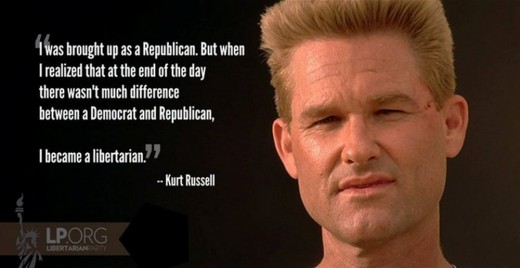
These are just a few samplings from I Chose Liberty:
Born in Ghana, economist James C.W. Ahiakpor quotes an old saying “a conservative is a socialist mugged by reality” which lead him away from Marxist economics, Fabian Socialism and Keynesianism and towards free markets, limited government, privatization and deregulation, eventually landing him in the arms of Hayek, Friedman and, yes, Walter Block.
Prof. D.T. Armentano, on the other hand, claims he was practically born a libertarian, having never gone through “any sort of messy political transformation” like Marxism or socialism or being a “warm and fuzzy liberal.” It all began coming together consciously when he was given a book, The Fountainhead.
Political activist David Bergland, the Libertarian Party’s candidate for president in 1984, first says he became a libertarian by “Reading Rothbard in the early 1960s” but then, like so many others, changed his “How I Became” story to “June 4, 1934, the day I was born.
Legal scholar Richard A. Epstein calls himself “The Accidental Libertarian;” journalist Joseph Sobran is “The Reluctant Anarchist;” prolific freelance writer Karen De Coster is another “From the Womb” libertarian; and LP co-founder and creator of the Nolan Chart political spectrum diagram David F. Nolan admits to “Discovering the Libertarian Within.”
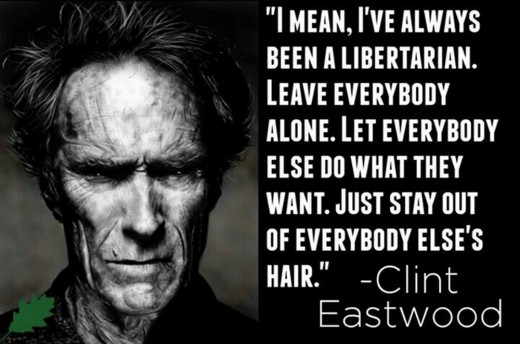
For other, more recent names better known to younger generations it’s just a simple matter of scrolling through a search engine with the search phrase: “How I became a libertarian.”
Greg Gutfeld of “Red Eye,” “The Five” and “The Greg Gutfeld Show” on the Fox News Channel put his conversion story very succinctly in a Reason Magazine interview:
“I became a conservative by being around liberals and I became a libertarian by being around conservatives.”
And speaking of Reason Magazine, when John Stossel was asked by former Dallas Libertarian Examiner writer during a brief chat following a presentation and signing event of his book No, They Can’t at Southern Methodist University a few years ago his response was even succincter:
“Reason Magazine.”
But then he did add his standing elaboration: “It was an epiphany. They were getting it right."
And here’s Reason Mag again: Brian Doherty, Reason senior editor and author of Radicals for Capitalism (the laissez-faire kind, not the corporatist kind) took the science fiction path:
“I became a libertarian by reading the science fiction trilogy The Illuminatus by Robert Anton Wilson and Robert Shea when, I think, I was in eighth grade and it imbued me with a sort of humanist sense with this terror and evil of the system that used violence to order people around.”
Penn Jillette, the “larger, louder half” of the magic/comedy team of Penn & Teller, the one who does all the talking, said at the end of his long (talky) opinion piece in Newsweek:
“But I do know that if this is a government by the people, and I’m one of the people, and the government is the one with guns—I know that it is immoral for me to use the government to use force, to use guns, to do anything that I wouldn’t do myself. And that’s how I became a libertarian.”
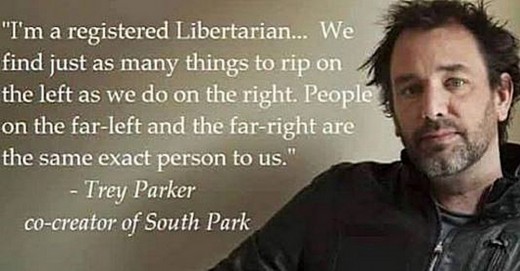
But most libertarians are just everyday people, not libertarian notables. One “How I Became a Libertarian” stated:
“For me, libertarianism is not just a political philosophy—it's a peaceful and prosperous way of life.”
It also answered what is frequently considered a “gotcha” question from libertarian detractors: “Why are there so few female libertarians?” But there are many. The quote from above comes from the same source who also says:
“Hi, I’m Dawn. I’m the mother of 3 healthy daughters, a work-from-home executive and stay-at-home mom, blogger, urban gardener, and a libertarian.”
So how did she become a libertarian?
“I was probably always a libertarian and just didn’t know it.”
“For as long as I can remember, I have been skeptical of the establishment and critical of conventional ‘wisdom’.”
This will sound very very familiar to many of us. Some may learn libertarianism through education or persuasion or epiphany but in so many cases it just seems that some form of intellectual, moral, and cultural zeitgeist has to be inherent in a person at birth or at least appear at a very early age that allows libertarianism to click in sooner or later in life.
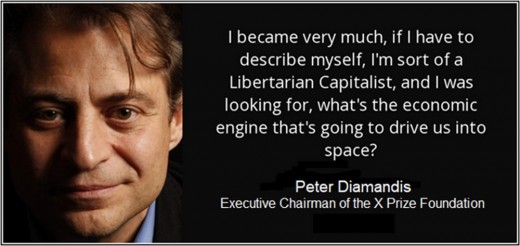
So many people have said so many times over the years “I think I always was a libertarian and just didn’t know it.”
Still, it’s equally true that many follow a very long journey through the many different species of libertarianism and aren’t done even yet.
Writing in the blog Being Libertarian Charles Peralo’s single sentence sounds more like a teaser line than a testimonial:
“The atheist in a Catholic school, the struggling young inventor, the person obsessed by numbers and the person in love with the idea of the caped crusader, this is how I became a libertarian.”
Ultimately, as bespeaks an individualist philosophy, the route to libertarianism is always personal.
Perhaps it wound through main roads and back allies of growing up never buying into the absolutism of gods and organized religions, of embracing a youthful obsession with the early establishment-ridiculing Mad comics before they became the more respectable magazine, of discovering Golden Age science fiction in early teen years, of stumbling upon and embracing virtually everything Ayn Rand ever wrote and said.
And then perhaps discovering the Libertarian Party and becoming a minarchist, then moving on into voluntaryism and post-statist libertarianism while pursuing the closest one can possibly get to a laissez faire capitalist career in today’s post-freedom America as an independent self-employed freelance technical documentation specialist before retiring as a full-time libertarian blogger.
If you’re a libertarian you certainly have your own story to tell. But if it ends with “Why I’m no longer a libertarian” we can only hope that you’ll find your way back into self-ownership, individual freedom and personal responsibility in a chapter of your own yet to be written.
References and Links
Reason Interview with Greg Gutfeld How a liberal Berkley graduate took a journalistic job at the conservative American Spectator and eventually turned into a satirical smart-alecky libertarian on the Fox News Channel.
Penn Jillette’s Becoming Libertarian Story His long article in Newsweek recounts how with his pony tail and show biz background he and Teller were “fast-tracked to be Hollywood liberals” but became libertarians instead.
John Stossel and his Libertarianism “I used to be a Kennedy-style ‘liberal.’ Then I wised up. Now I’m a libertarian.” Yes, there was more to Stossel rejecting his liberalism to become a libertarian other than just reading Reason Magazine.
Defending the Undefendable II In this companion to his original book Walter Block defends from statist coercion such nefarious actors as the multinational enterpriser, the smuggler, the corporate raider, and others demonized by intolerant social justice warriors.

